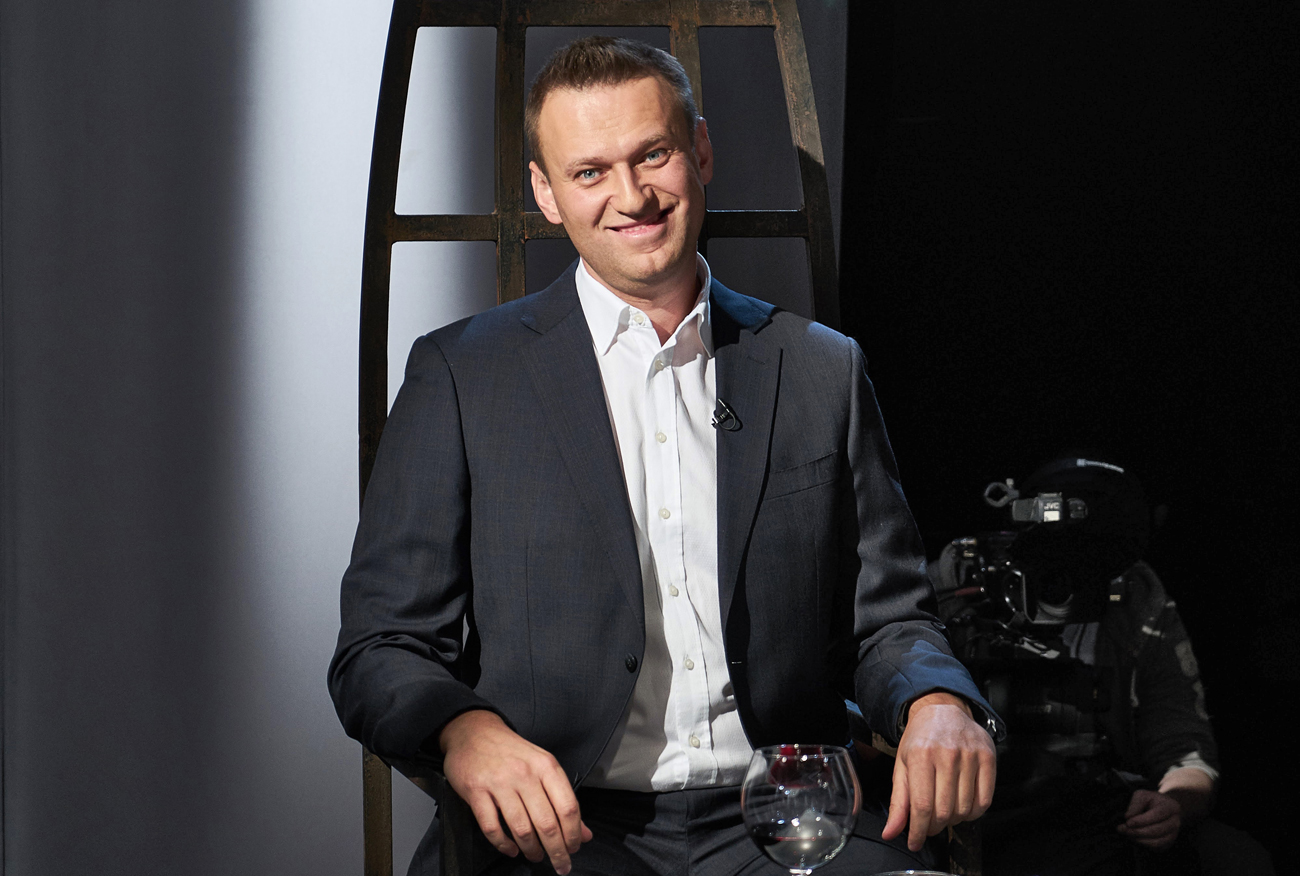
Alexei Navalny: 'I will be running with a program on how we can make Russia just and modern.'
KommersantOpposition figurehead and anti-corruption campaigner Alexei Navalny has announced that he will be running for president in March 2018, sparking a wave of interest online and in the media and promising to shake up elections that have become lifeless and predictable. On Dec. 13 the lawyer launched a site for his campaign bearing the slogan "Alexei Navalny – it's time to choose."
"Russia must be a wealthy, free and strong country. We have everything for this: talented people, natural resources. I will be running with a program on how we can make Russia just and modern. (…) We need an honest discussion, not another fake TV show," says Navalny on his site.
Navalny regained his electoral right quite recently – only in November 2016 – after the Supreme Court ordered his Kirovles case to be reviewed following a verdict by the European Court of Human Rights that the trial had been unfair and Navalny and his co-defendant were victim of an arbitrary interpretation of the law.
It was this controversial case, which dealt with the alleged theft of property belonging to the Kirovles company and was widely seen as politicized, that was preventing Navalny from participating in elections. Valery Vanin, member of the Chamber of Attorneys and international lawyer, explained that Navalny will be presumed innocent until the court's new decision, which means that the suspended sentence for theft has been annulled.
The politician has already begun raising funds for his campaign. Navalny's partner Leonid Volkov, who will head his staff, wrote on his Twitter account about the first results: "One hour ago we sent out a video to our supporters. In an hour we received 130 donations for a total amount of 200,000 rubles."
Navalny was also the first among potential candidates to officially present a program for the elections. Its key points, as stated on his site, are: defeating corruption, making the oligarchs equal to ordinary citizens by collecting a one-off tax, limiting the authority of the siloviki (officials from the security services and military), reforming the judicial system, introducing a visa regime with countries in the Middle East and "stopping the operations in Syria and Ukraine," with the Kremlin continuing to insist Russian troops are not present in the latter.
The Kremlin has already expressed its opinion on Navalny's statement. "No opinion," said Presidential Press Secretary Dmitry Peskov when asked how the Kremlin evaluates Navalny's decision to run for president.
This will not be Navalny's first election. In 2013 he participated in the Moscow municipal elections and garnered 27 percent of the vote. Current mayor Sergei Sobyanin won the elections with about 51 percent.
Afterwards, Navalny developed a format for investigating the corrupt activities of the county's officials. The video summarizing his Fight Against Corruption Foundation's investigation of Prosecutor General Yury Chaika's family was watched by six million people.
"Navalny will now liven the dull farce called 'the presidential elections.' He will provide voter turnout," tweeted Russian blogger Rustem Adagamov.
However, not all Navalny supporters believe in his success. "Lyokha, even if you suck out your right to the elections from the Kremlin, you still won't be able to collect two million signatures," tweeted journalist Mikhail Kitaitsev, referring to the legal threshold for running as a candidate, often used by the government as a way of blocking “undesirable” candidates from running for office.
In the opinion of Pavel Salin, director of the Center for Political Studies at the Financial University under the Russian Government, Navalny's possibilities will directly depend on what the government decides concerning the format of the presidential election campaign. For now the decision still has not been made.
There is now an option to attract candidates from the unsystematic opposition, because the candidates from the systematic opposition (that is, the three parties that are represented in parliament) blend with the government in the eyes of the voters and create the feeling that there is no alternative, Salin explains. Or the decision will be made by the Kremlin to carry out a traditional campaign, meaning a candidate from the government, plus leaders from the systematic opposition, plus a few nominal figures to liven things up.
"But in any case, even if Navalny is allowed to run and the administrative machine has pity on him, I doubt that he will have a chance to win," said Salin. "But that is not his objective. His mission is to transform from a blogger-oppositionist to a federal politician, whom the government would recognize as a sparring partner."
All rights reserved by Rossiyskaya Gazeta.
Subscribe
to our newsletter!
Get the week's best stories straight to your inbox